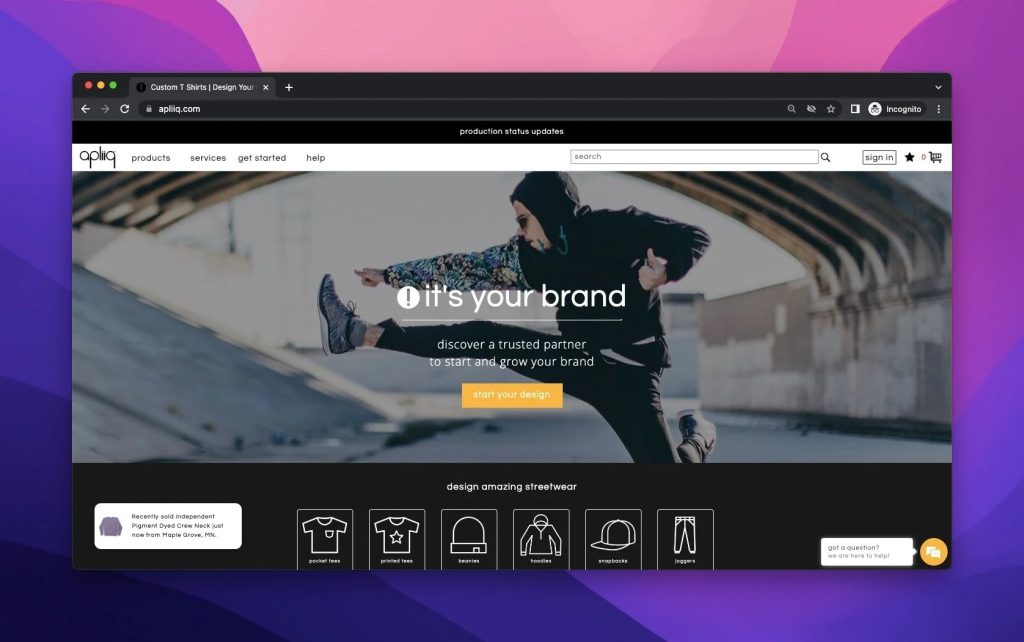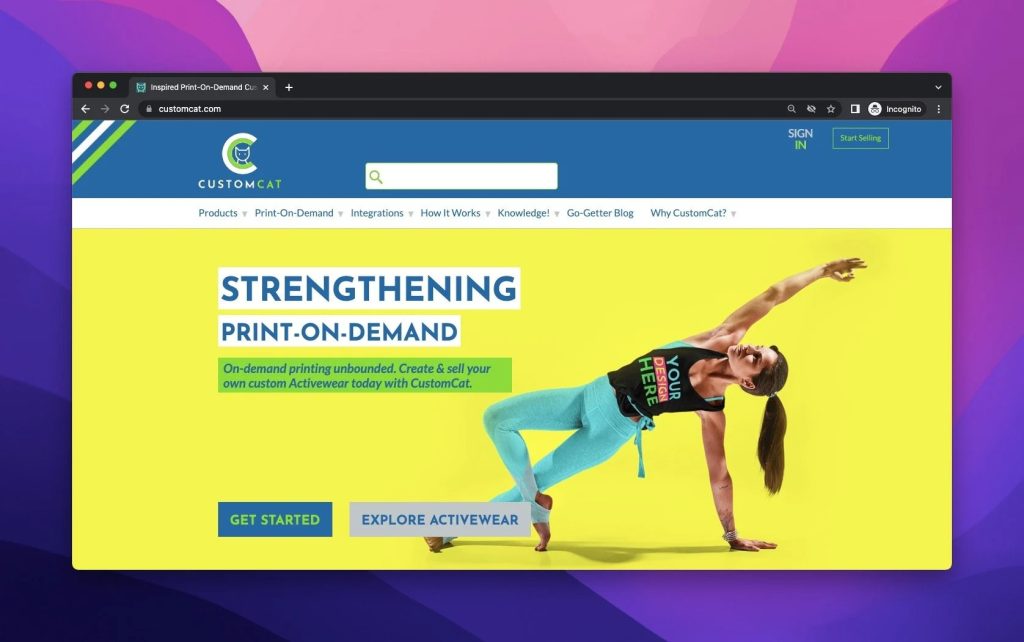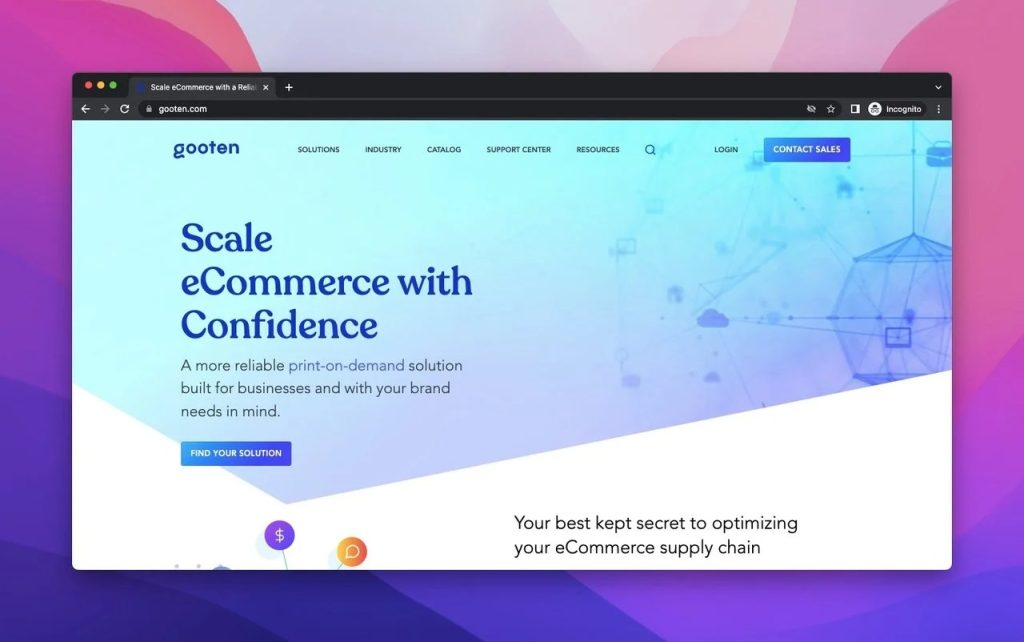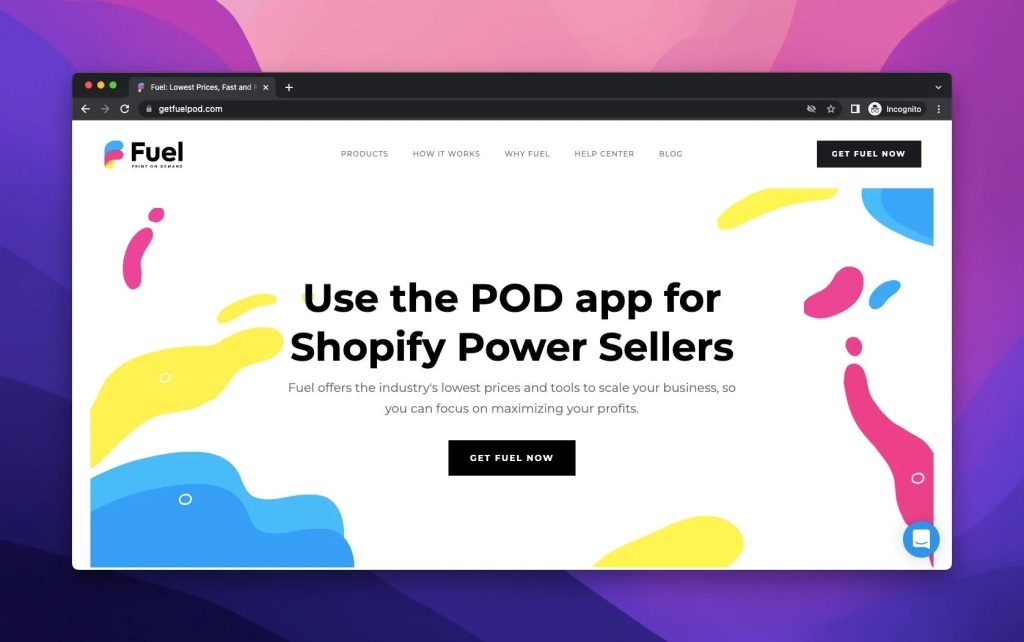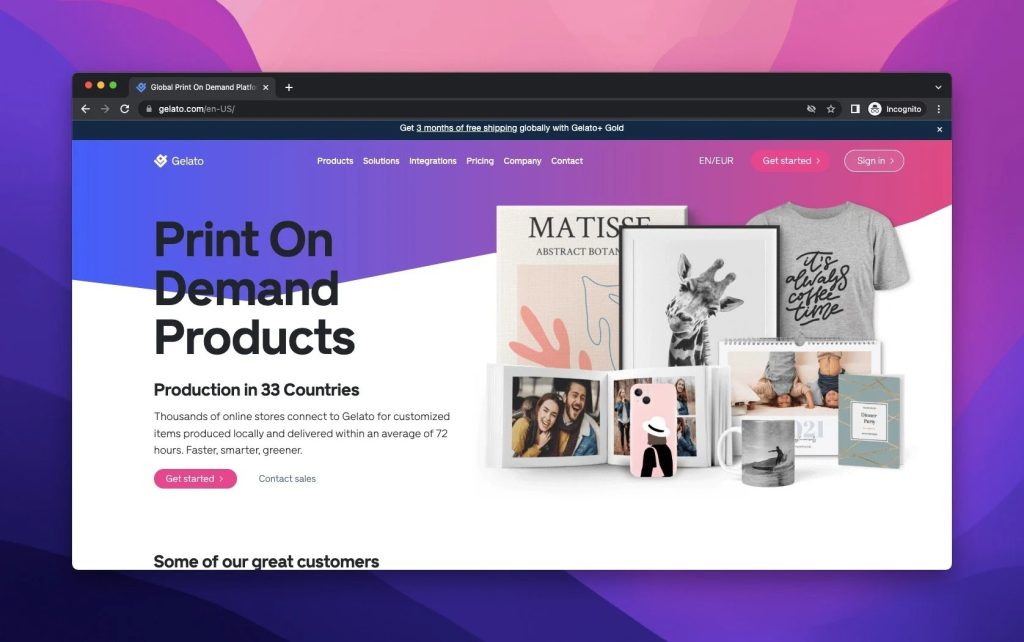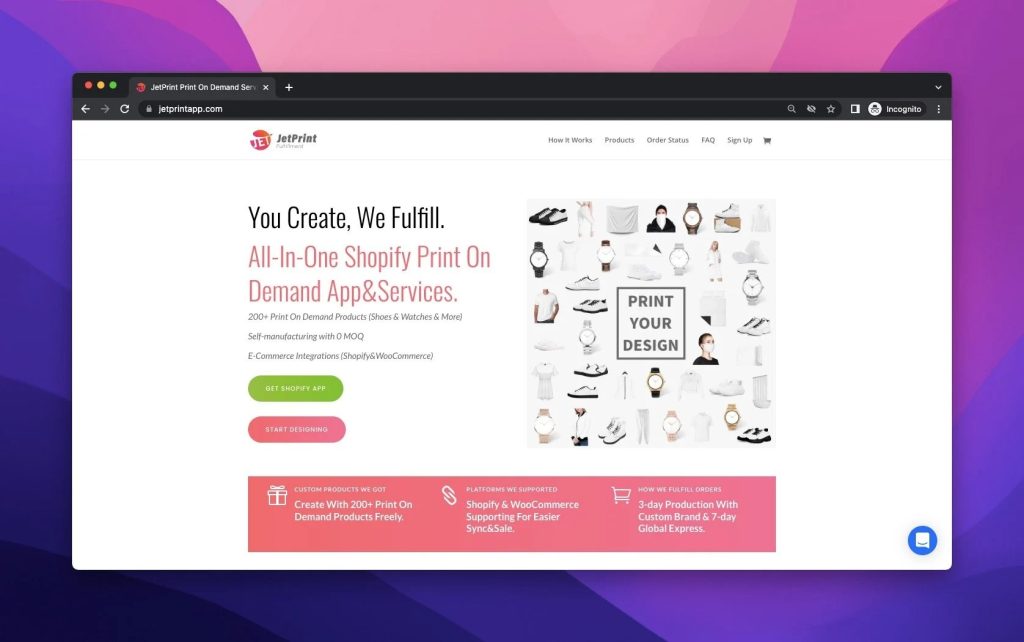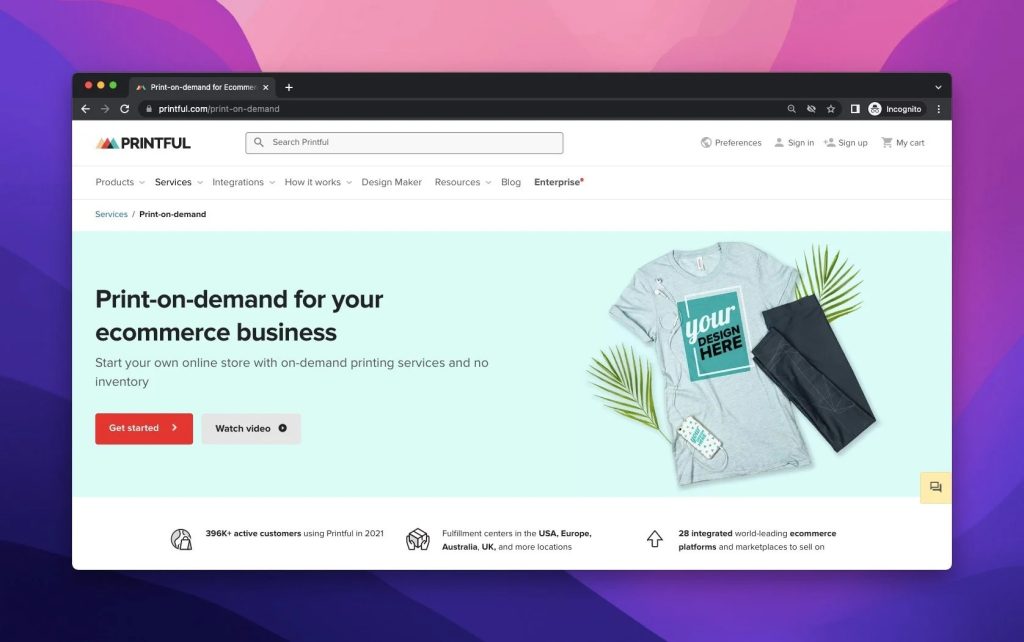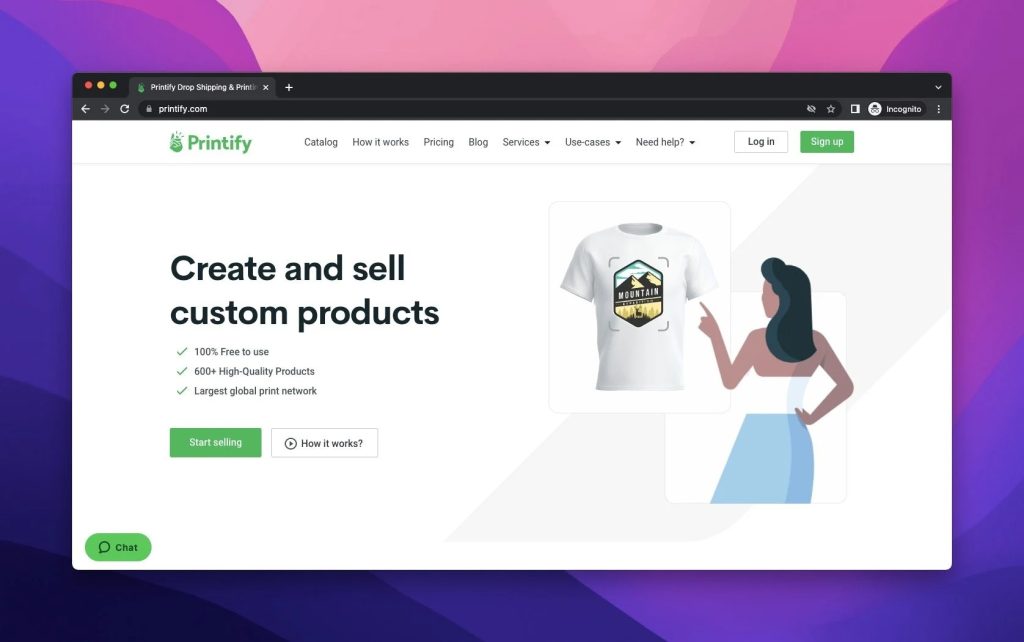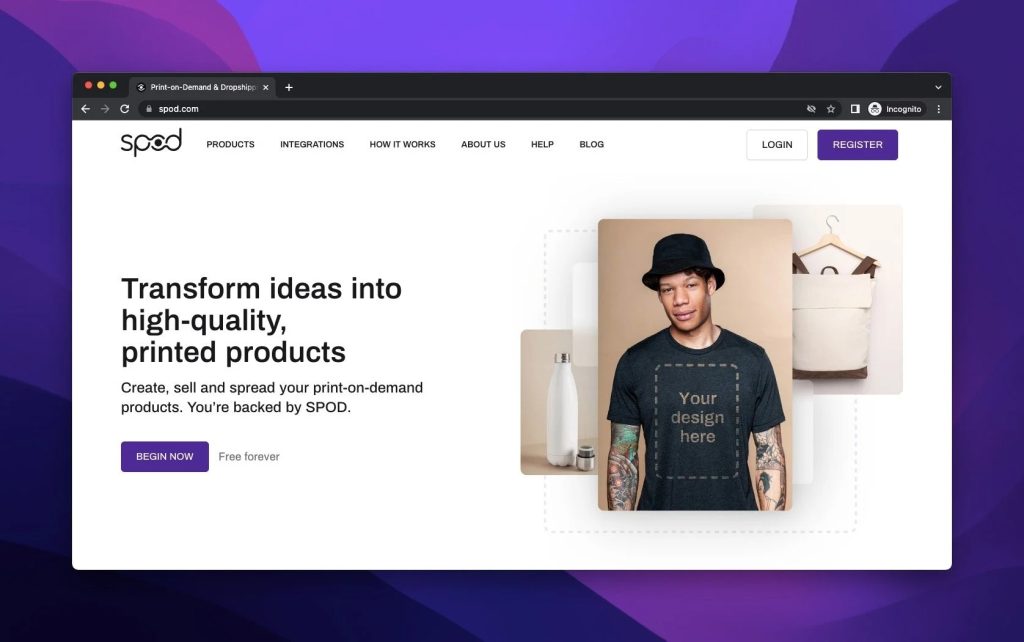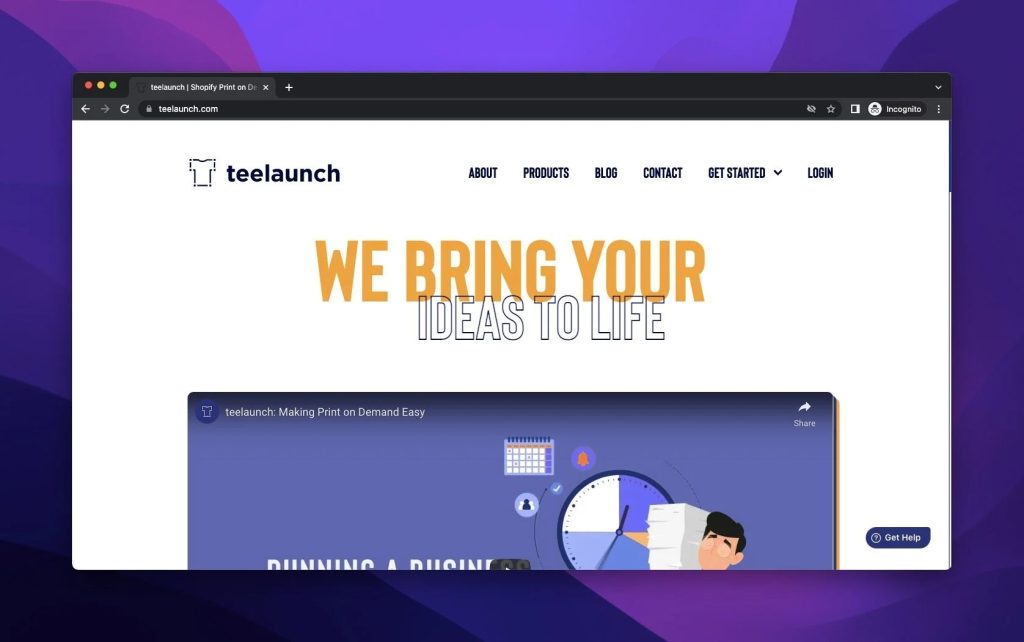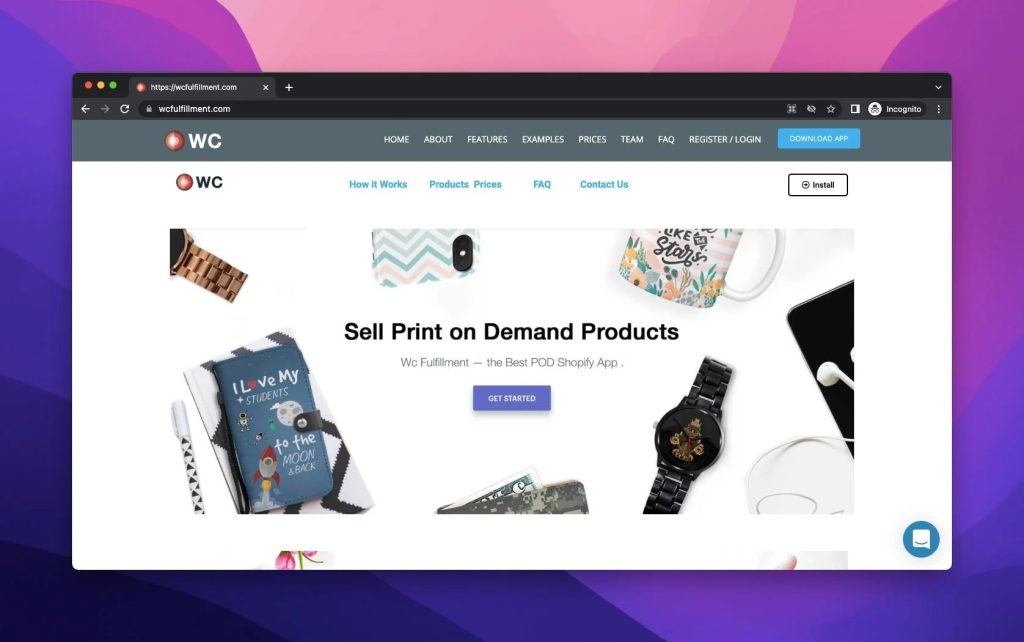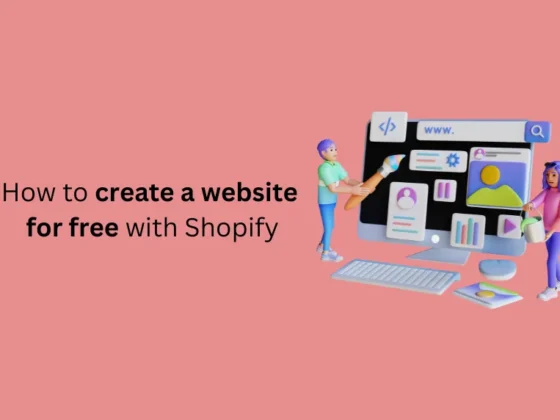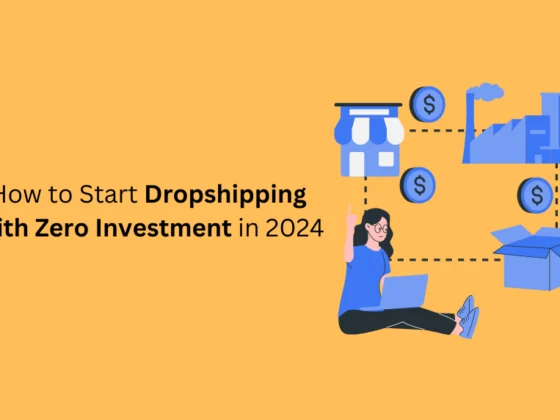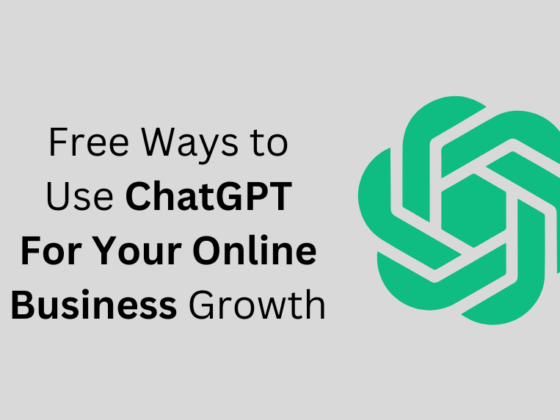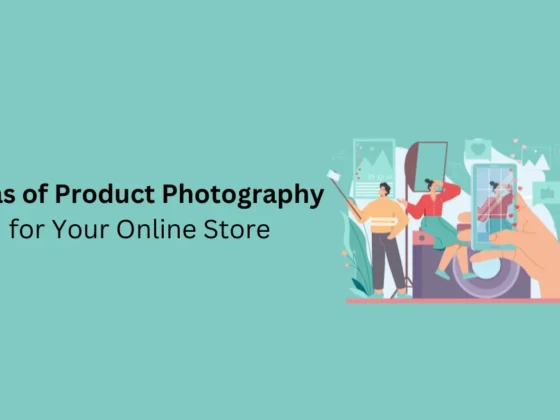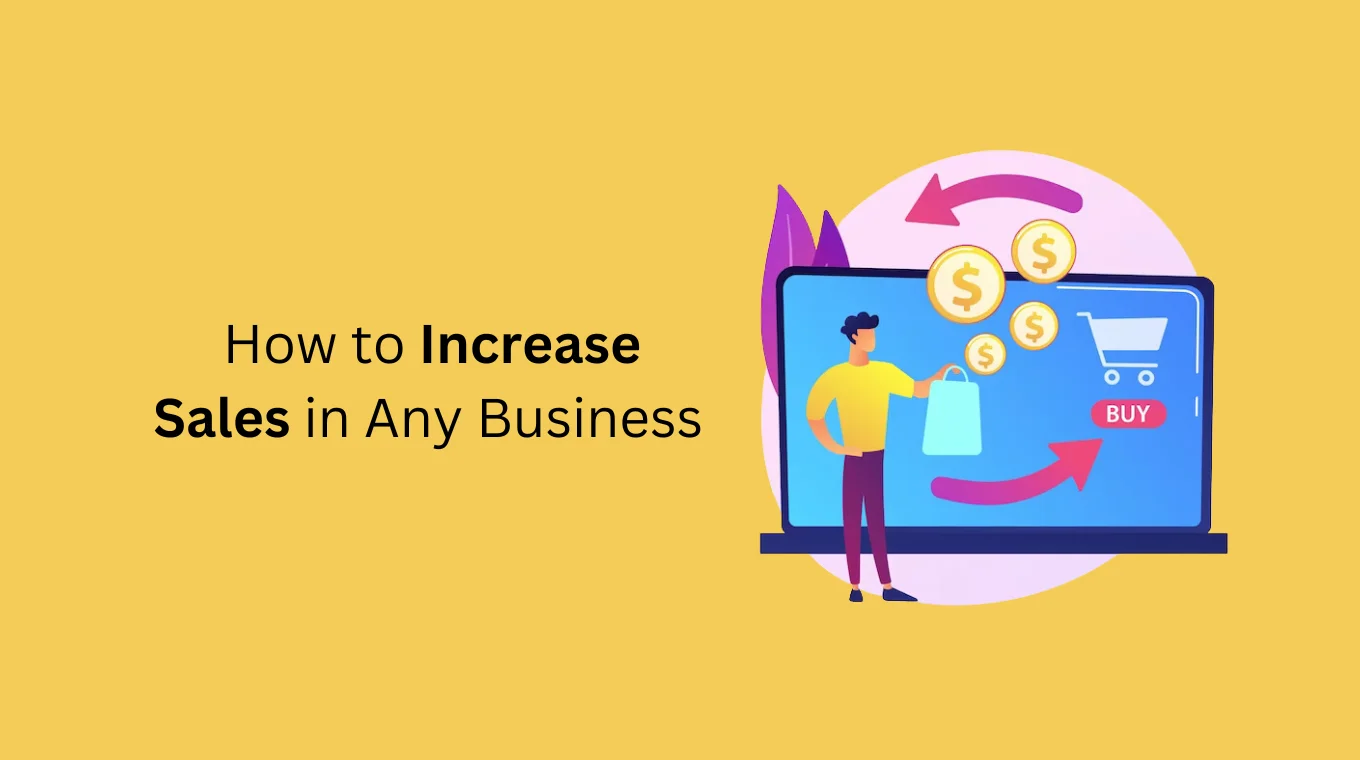Shopify Print-on-Demand Apps allow you to sell products without having to invest in inventory. This can save you a lot of money, especially if you are just starting out.
You do not have to live up to expectations in life, but it would be much better if you print based on the demand you get in the business.
Though it is good to be prepared for the orders you get beforehand, print-on-demand presents an unusual option to deal with buying and selling.
There is no need to worry about starting a business without inventory or shipping because these are precisely what Shopify Print-on-Demand Apps can deal with.
As a wealthy e-commerce store, Shopify App Store has various print-on-demand apps to discover for applying different order fulfillment methods.
contents:
- What is Print-on-Demand?
- Top 12 Shopify Print-on-Demand Apps
-
-
-
-
-
-
-
-
-
-
-
- Apliiq
- CustomCat
- Gooten
- Fuel
- Gelato
- JetPrint
- Printful
- Printify
- Pixels
- SPOD
- Teelaunch
- WC Fulfillment
-
-
-
-
-
-
-
-
-
-
- Frequently Asked Questions
- To Cover All
- Other Shopify Contents
What is Print-on-Demand?
Print-on-demand is a method that fulfills orders according to the demand a product gets.
In other words, the selling process starts with a demand/ order. Then, the product is printed, and the shipping process comes into reality.
Print-on-demand is also called POD. Though it is similar to the dropshipping process, POD needs printing to be called the way it is.
It is possible to use print-on-demand for various cases, like the printing of books, magazines, newspapers, the products, including t-shirts, hoodies, sweatshirts, mugs, canvas, and many more.
Starting the process of print-on-demand can be considered straightforward and cost-effective. However, although it is probable to approve that, you might need help, and that is why we have gathered the top 12 Shopify print-on-demand apps.
Top 12 Shopify Print-on-Demand Apps
These 12 Shopify POD apps will possibly give you the idea behind print-on-demand with their pros and cons.
You can also notice the ease and hardship of the POD process. In this article, we suggest you consider the ratings and pricing details to make a decision at the end of the reading.
1. Apliiq
Apliiq serves a wide range of products like cut n sew, stitching, and labeling, along with printing. It also both presents print-on-demand and dropshipping for customers.
Additionally, Apliiq has a help page for the knowledge base, and there are short articles to help you understand and get used to the app.
As for payment, Apliiq accepts all major cards and PayPal, as most of the print-on-demand apps do.
Pros:
- Customization options
- High quality of DTG
- Great customer service
- Developed product catalog for clothing
- Bulk buying and dropshipping
- Well packaging of products
- The help of an in-house production artist
Cons:
- Some delays have occurred during the COVID.
- It only deals with clothing, not any other items, such as mugs or canvases.
- Integrations and warehouses must be improved.
Pricing: You can start freely, yet external changes can be seen on the invoice, so you have to check the monthly fees and invoices.
Shopify Ratings: 4.7
2. CustomCat
The most important thing about CustomCat is their trust in themselves for having hard-to-find products.
Also, allowing for personalization makes things highly easier for the customers preferring the app and favored by them.
Bulk upload/ export is quick and easy. Besides, companies with a wide range of products do have not much difficulty in their profession.
Pros:
- Developed user interface
- Good support system
- Fast fulfillment
- Seamless integrations
- Integrations with Etsy, WooCommerce, and BigCommerce
- Cost-effective to use
- Different printing technologies, like DTG, sublimation, digital printing, embroidery, 3D dye fusion
- Personal experience option
Cons:
- Delivery time can be long.
- Their only warehouse is in the USA.
- There is no custom packaging.
Pricing: CustomCat offers two plans. One of them is CustomCat Lite for free with no monthly fees or upfront costs. The other is CustomCat for $30 per month with a 30-day free trial and 350+ products.
Shopify Ratings: 4.1
3. Gooten
Gooten deals with print-on-demand on the surface, yet it is interested in many things to improve the service of POD, like flexible API, robust catalog, automated workflow, and global network.
Also, one of the most important aspects of a POD app is the industries it deals with, and Gooten manages four top categories: fashion and apparel, entertainment and media, personalized gifts, and home decor.
Besides, the resources Gooten provides help adapt the tool and the process.
Pros:
- Easy to use and setup
- Intuitive interface
- Wide range of high-in-demand products
- Available customization options
- Good production and shipping generally
- A blog to give advice
- Fair pricing
- Integration with e-commerce platforms, like Etsy, WooCommerce, and BigCommerce
Cons:
- Mockups can be better when compared to the other competitors.
- Reaching customer support should be easier with a free live chat tool or other channels.
- Some users experience sending substitute products, and it affects them badly.
Pricing: Gooten is free to install, like most POD apps. However, the external charges may be applied out of the Shopify invoice.
Shopify Ratings: 4.2
4. Fuel
Fuel: Print-on-demand offers a quality guarantee for the lowest prices for their products.
Also, since it is made for Shopify, its aim is to power the sellers that apply to Shopify.
Fuel works with well-known brand names, and workflow automation is time-saving.
Pros:
- Simple to navigate integrations
- Robust support
- QA team assurance
- Fair pricing offers
- Wide color scale and printing options
- Fast shipping
- Product Quality
Cons:
- Some delays caused by the suppliers occurred.
- The stock control of their inventory must be done more repeatedly.
- Production must be accelerated.
Pricing: Fuel is free to install. Yet, you need to track the charges you will pay during the shipping process.
Shopify Ratings: 3.9
5. Gelato
Since it deals with global shipping, Gelato reaches both local and international areas, which makes it the most common app on this list.
Gelato does not wish for any upfront cost in addition to very affordable pricing plans.
Besides, with the free design tools Gelato offers sustainable production and personalization for your products.
Pros:
- Intuitive and responsive app
- Supportive customer service
- Economical pricing costs
- So many languages to prefer
- Integrations with different e-commerce websites
- Easy refund policy
- Helpful tutorials and resources
- Seamless process for the most
Cons:
- Some products’ quality was not like how it was expected.
- The IT team should fix several bugs.
- Frame quality can be improved.
Pricing: Gelato has three plans: Free forever, the Gelato+ costing $9.99 when billed monthly, and the Gelato+ Gold costing $599 yearly for three months of global shipping and other qualified features.
Shopify Ratings: 4.4
6. JetPrint
JetPrint might be one of the most critical tools that offer custom products for its customers, and it is highly famous for that.
Plus, the real-time mock-up generation is vital to know about JetPrint, and it is for improving the custom branding.
If you are also interested in dropshipping apps, JetPrint is effective in this. Hence, you can deal with both POD and dropshipping.
Pros:
- Practical design lab
- Attentive customer service
- Wide selection of products
- Updating product stock with new ones
- Informative FAQ page
- Top-notch quality products
- Different payment integrations
- Various custom design options
Cons:
- Some customers experienced a lack of concern.
- There are some delays in the mock-up engine.
- It is possible to say that the test order/ mode needs to be improved.
Pricing: JetPrint is free to install, and the shipping process may have other charges based on the print-on-demand process.
Shopify Ratings: 4.0
7. Printful
Fulfillment, shipping, and delivery is a processes of a few clicks with Printful. As a Shopify-founded company, it has addressed millions for years. They aim to create and sell custom online, and they give tips, advice, and influential articles to read and inspire.
Pros:
- Straightforward to use and design
- Easy to integrate
- Allowing customization
- Good templates
- Concerned customer service
- Updating about shipping delays or anything
- Transparent prices
- Fair shipping time frame
Cons:
- The color scale can be expanded.
- The quality of printed products is not always the same, and some problems may occur.
- Shipping can be overpriced.
Pricing: It is totally free to start, and you are charged when you make an order. The charge you will get will be for shipping and manufacturing only.
Shopify Ratings: 4.6
8. Printify
Another POD for Shopify on the list is Printify. With a broad working crew, Printify has a global network by reaching the USA, the UK, Australia, Canada, Germany, Latvia, the Czech Republic, and China.
Since Printify gives utmost importance to the print-on-demand process, it includes vendors, which means the process is composed of elements from around the world.
Also, the possibility of profit margins should be taken into consideration with the opportunity of fulfillment and dropshipping.
Pros:
- Simple to adapt
- High-quality products
- Quick and up-to-date tech
- Customization option
- Seamless workflow
- Amazing customer support
- Easy integration opportunity
- Beneficial financial visibility
Cons:
- Shipping costs should be followed.
- Niche products may cost higher than the customers had thought.
- Their system can be more flexible as it is expected.
Pricing: There are three plans the Free plan for 5 stores per account and the Premium plan costing $24.99 per month for unlimited product designs and 10 stores per account. The final plan is the Enterprise for the merchants with +10.000 orders a day with unlimited features.
Shopify Ratings: 4.4
9. Pixels
Working in both local and global markets, Pixels has worked with many well-known brands up to now.
Since it has an automated order fulfillment system, the manufacturer deals with the product for a short period of time; then, the dropshipping process begins.
As a friendly reminder, though Pixels has many advantages over its competitors with its products, it is essential to track the charges because most customers have concerns about this issue.
Pros:
- Simple to set up
- Potential deficit
- Caring customer service
- Strong product durability
- Proper product integrations
- Suitable quality of products
- Good product pictures and definitions
Cons:
- Some integrations are not seamless as expected.
- The products can be detailed more despite their quality.
- The app needs to be updated according to the customers’ reviews.
Pricing: This app is free to install, yet you will be charged externally. Therefore, you should be keeping up with the prices during the printing and shipping process.
Shopify Ratings: 3.6
10. SPOD
As the most assertive app in terms of 48 hours of print-on-demand process, SPOD is also effective in dropshipping.
SPOD is powered by Spreadshirt, which is very famous for its fast shipping and product variety.
To highlight the product catalog, it is possible to say that they offer more than 110 options, and their customization tool is highly favored by the users.
Pros:
- User-friendly product designer
- Fair pricing
- Great customer service
- Various printing options are available
- Integrations with Magento, WooCommerce, Squarespace
- Simple API integration
- Competitive shipping fees
Cons:
- Tracking and delivering did not correspond.
- Rejection of credit and debit cards occurred.
- Bulk load must be supported.
Pricing: To begin is free forever. Yet, it is possible to come across some external charges caused by external providers, not Shopify.
Shopify Ratings:4.1
11. Teelaunch
One of the most favorable print-on-demand apps is Teelaunch, which has promised a successful print-on-demand process since 2015.
It has helped many stores to make a profit, and because the range of what you can sell is extensive, Teelaunch has a helpful website to discover when people consider print-on-demand.
Additionally, Teelaunch was founded by entrepreneurs for entrepreneurs, so the process is made more accessible and more applicable than it is supposed to be.
Pros:
- Fast shipping
- High-quality mock-ups
- Top-notch customer service
- Successful Direct-to-Garment (DTG)
- Integrations with e-commerce platforms, like Etsy, WooCommerce, and BigCommerce
- Wide range of products
- Reasonable pricing for the products
- Fairly good backend
Cons:
- The locking of accounts has caused some problems for a few customers.
- Some customers experienced deleting the orders.
- Updating the app created some problems.
Pricing: Teelaunch is free to install, but external charges may be applied with the shipping process, and it might be reflected on the invoice of the providers.
Shopify Ratings: 4.1
12. WC Fulfillment
With the option of free installation, WC Fulfillment automatically completes the shipping process after the printing.
Also, it is important to mention that WC Fulfillment offers a 100% product guarantee along with their notification offer in case of any updates.
Though customer support is open to discussion for many customers, there are many positive sides to WC Fulfillment.
Pros:
- Easy to use
- Having mock-ups for the products
- Free training offer
- Support of marketing strategies
- Various print options
- Giving importance to uniqueness
- Value for money
- Successful updates and workflows
Cons:
- Some customers shared that the shipping process had lasted longer than expected.
- Tracking numbers may be problematic.
Pricing: There are two plans for WC Fulfillment that you can sign up for. The first plan is $0 per month for the merchants starting a business. The other plan, Premium for merchants with growing sales, costs only $9.99.
Shopify Ratings: 4.0
Frequently Asked Questions
We have collected some frequently asked questions that people generally wonder about print-on-demand apps. You can check them out to learn more about print-on-demand.
Also, you can ask your questions if you have any in the comments section below!
What is the Best Print-on-Demand App?
When we checked the Shopify ratings of the print-on-demand apps, we gathered that Eprolo and Apliiq are the best print-on-demand apps of all, and they have a high-quality service with their reviews taken from their customers.
What is the Real Difference between Dropshipping and Print-on-Demand?
The significant difference between dropshipping and print-on-demand is the length of the process because POD takes more time due to the printing process. Since the printing begins after the demand from the customer, it nearly doubles the time needed for shipping and delivery. In comparison, dropshipping is a collaborative process that requires more partners in the process.
What Should We Pay Attention to Choose a Print-on-Demand App?
Firstly, your business obviously. You need to determine what your business needs and have a product catalog in your mind that can fit one of the POD apps. Then, you must evaluate the printing options and how customizable they can be. Another factor is shipping and its safety, cost, and ease.
Is Print-on-Demand Really Profitable?
It depends on the business you do, the customers you address, and the service you produce. Print-on-demand has a low risk to start and is relatively easy to set up. However, you need to be careful to please your customers with the order you send, or you will have to pay the return cost.
If you enjoyed this, you might also enjoy these post

